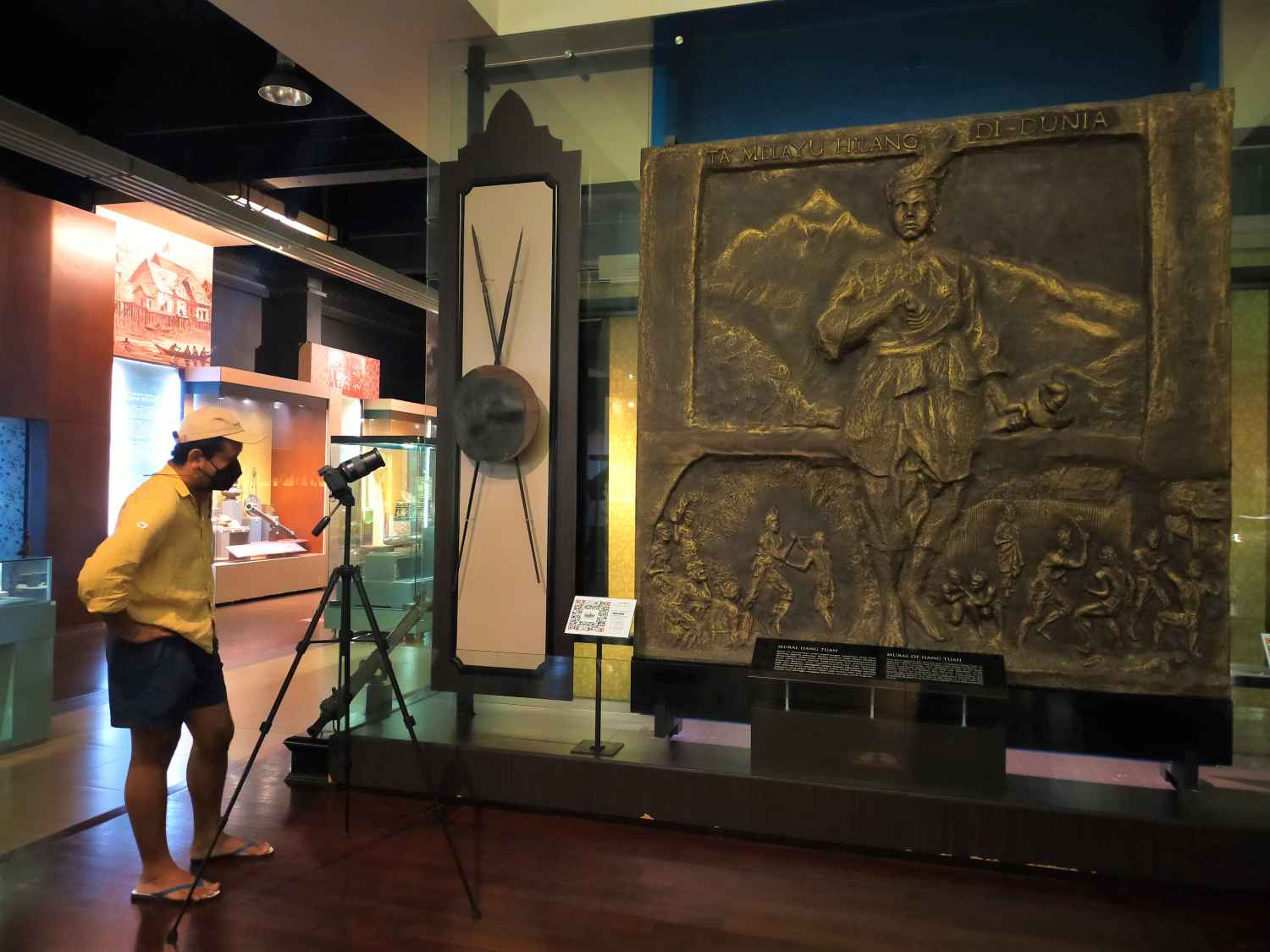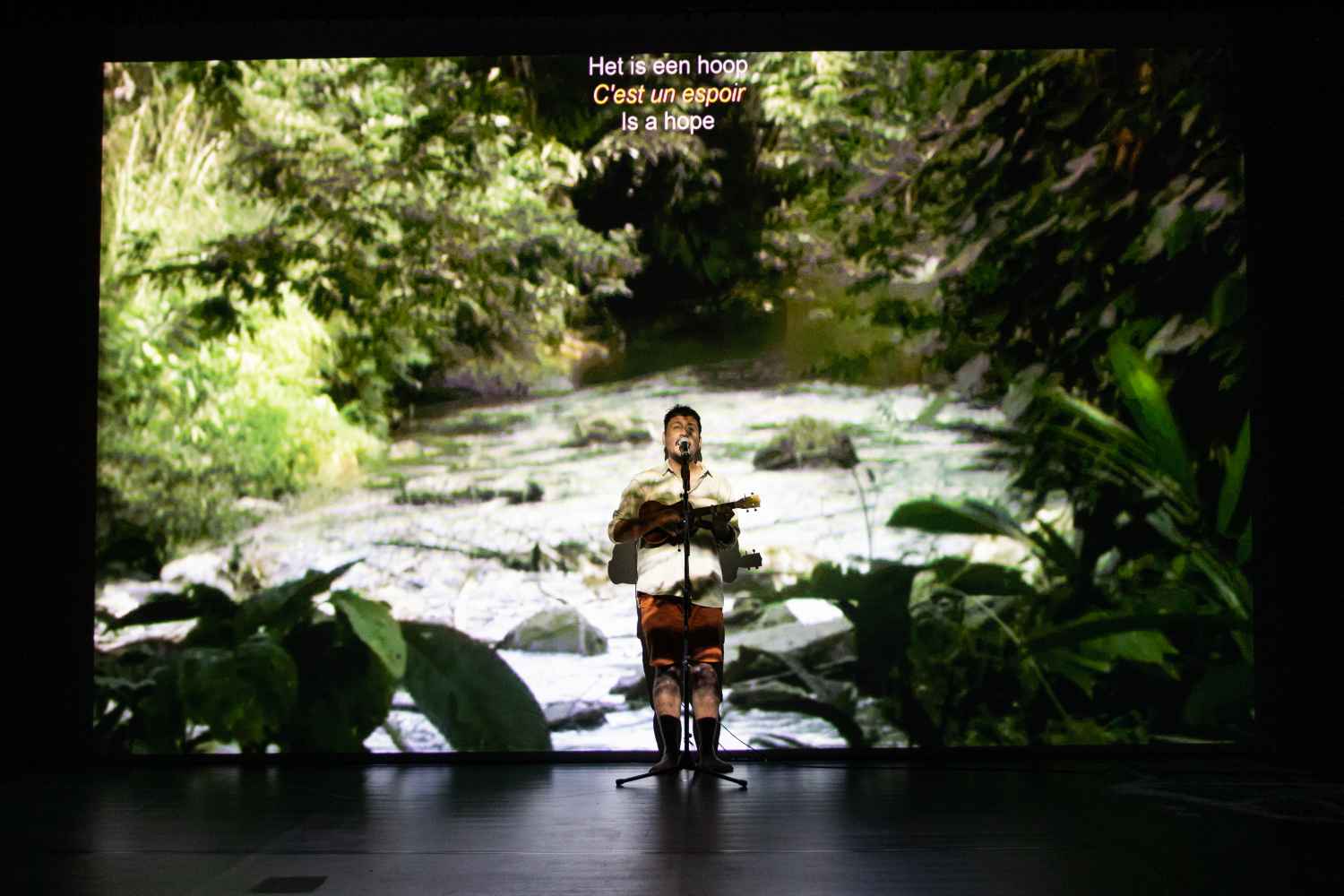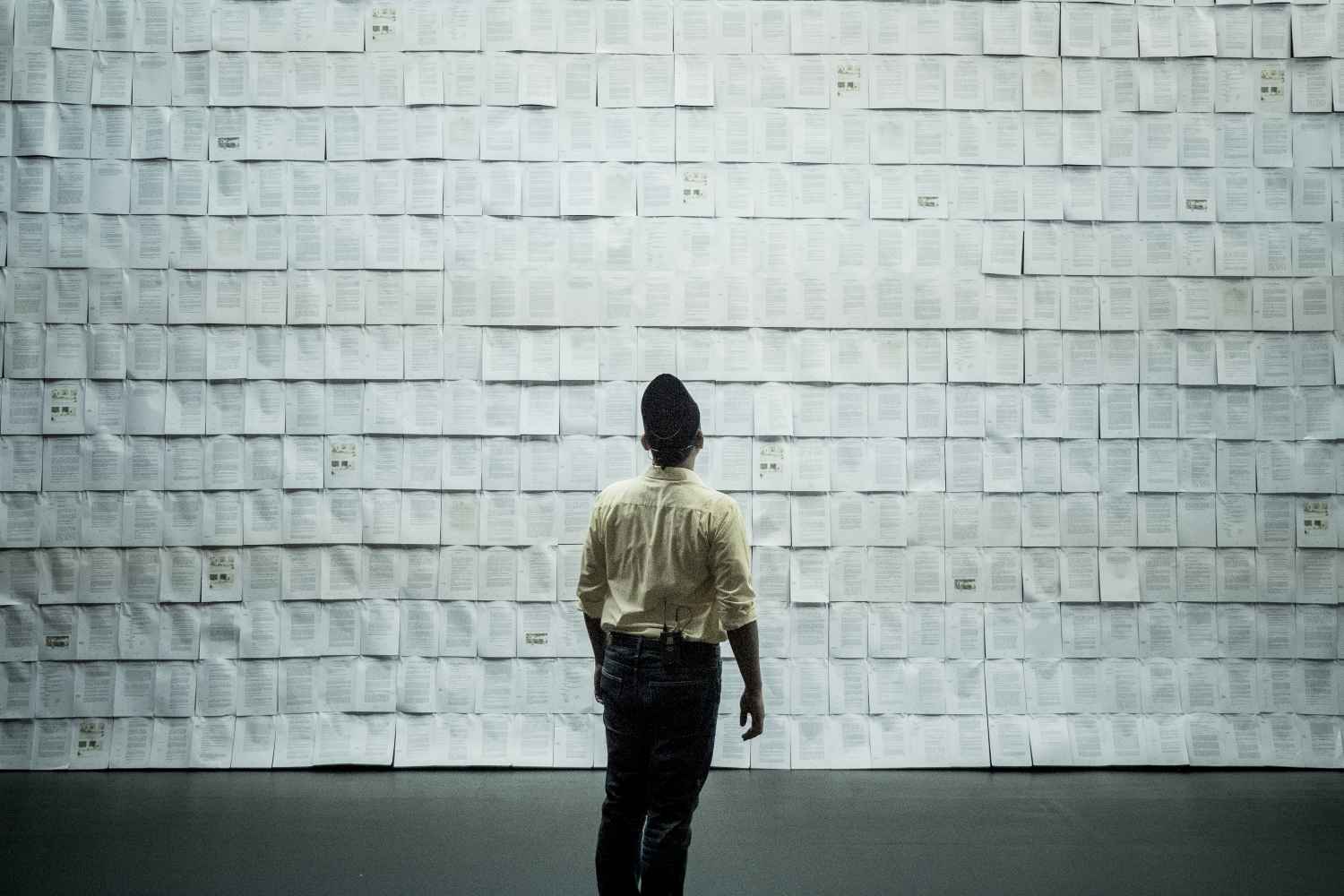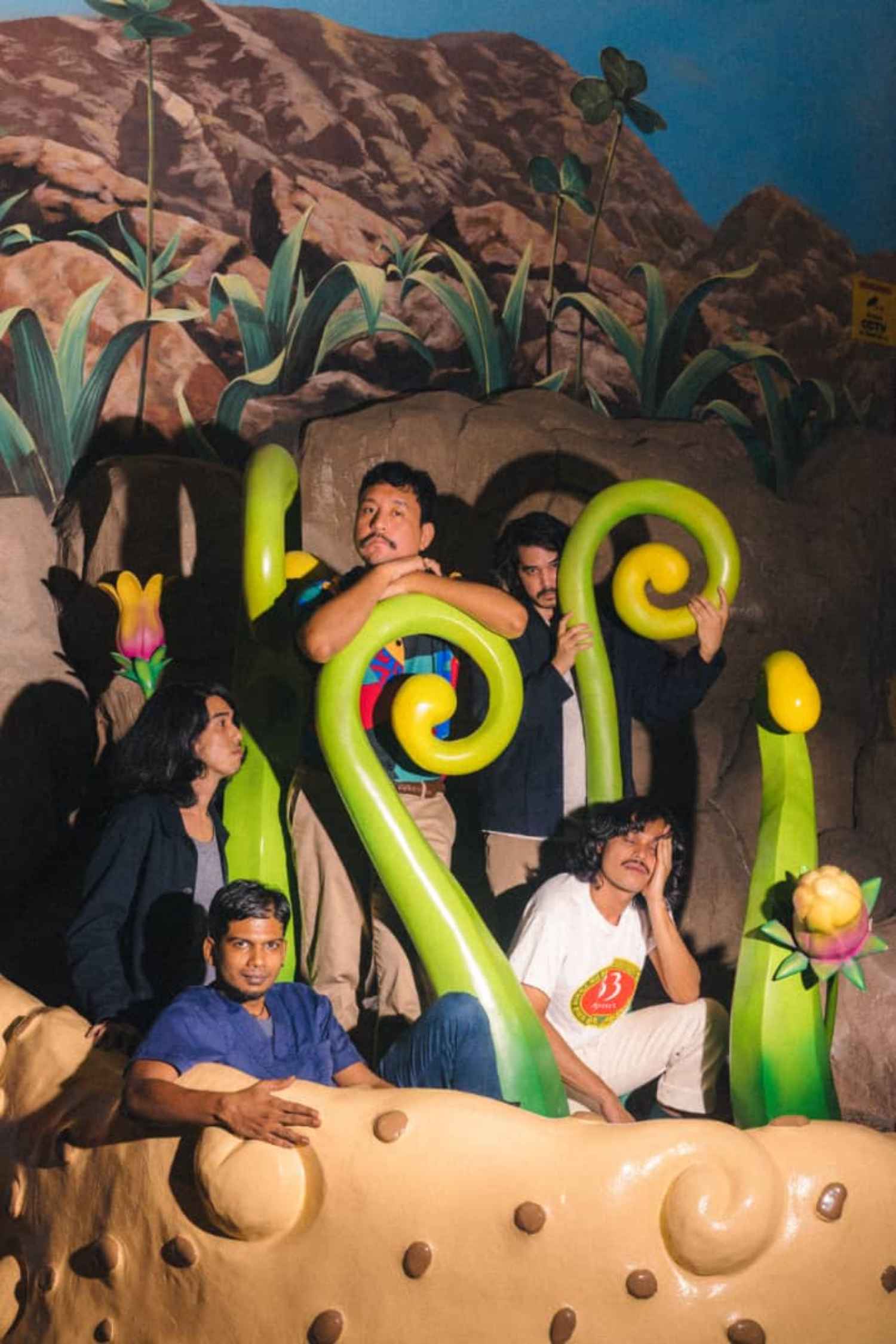
Faiq Syazwan Kuhiri is part of the rock bank Terrer, and a new member of Five Arts Centre. Over the past decade he has performed in many projects, including those initiated by Lee Ren Xin, Leow Puay Tin, Marion D'Cruz, and Mark Teh.
With performances of A Notional History on the horizon at The Kuala Lumpur Performing Arts Centre (klpac) and BIPAM (Bangkok International Performing Arts Meeting) in March 2023, Faiq shares about the unusual journey he has taken, his approaches to political and historical themes as a performer, and how he got started on making his own music.

The path you’ve taken as a performer has been rather unconventional. You often perform as yourself onstage, bringing your own personal experiences to documentary performances such as Something I Wrote, Baling, Version 2020, and A Notional History. This can also be detected in video projects you've undertaken, such as What The Faiq? and the fragments of Tuah video essay.
Could you share how you approach finding entry points, researching, and embodying subjects which are historically significant or politically charged? It appears as if you let things happen - accidents, curiosities, detours - and you bring these experiences, observations or sensations from everyday life to the projects.
I guess the self-referential feature of my work comes from the aspect of only using what I know to use. The Notional History team comes from several different ‘generations’, and each member has a different experience with the material. For example, the collaborative work of Mark Teh, Wong Tay Sy, and Fahmi Reza on the Malayan Emergency span a longer time. They seem closer to the material – they've gone up to the Peace Villages in Thailand to visit the exiled communists, they’ve seen their faces in real life and spoken to them.

My entry point to the material in A Notional History came from having participated in several Emergency-related projects that Mark and gang have made in the past. The issues seem a bit more distant to me, so the approach I chose to take with the material around the Emergency and the exiled communists was a more personal one. I did not approach it in terms of political movements or manifestos, but rather as personal choices made by these individuals a long time ago when they were very young, and to consider all the incidental happenings that might have occurred in their lives since they went into the jungle. And the only way I know how to carry this sentiment or idea is to use myself as the vessel. A vessel to carry the emotions, memories, longings, regrets, and other things that they might have carried.
Another unusual experience you’ve had is the opportunity to perform a show many
times, often over several years – touring to different contexts, cultures, and audiences – in projects such
as Baling and A Notional History. In Malaysia, most productions are done after a weekend
or two – rarely are shows restaged again. How does this affect you as a
performer? What do you discover when you revisit a work or role? What changes take place?
It's been a privilege to be able to perform our work multiple times and in multiple places. Each room always feels different, and each night always has a different energy. The thing with performing A Notional History, and to an extent Baling, many times is that I’m not playing a ‘character’ on stage. What I’m essentially performing is versions of myself onstage. The text was written by me – about my own memories.

So, whenever we revisit the performance in rehearsal for a new location, the question that I always end up
asking myself is, how is this true to me now? Some days I come up with an answer and some days I
don't. I find that the trick to answering this lies in the room that we are performing in. Establishing
a connection with the audience in that present moment, making eye contact with them to establish brief
connections with each audience member in the room helps me feel closer to the words written and performed a
long time ago.

Your band Terrer recently released the EP Kaum Lelaki. It's been hailed by music fans and critics alike, partly because the lyrics speak out powerfully and poetically against the prescribed roles or stereotypes for men – in particular Malay men – in our society. The songs sketch out other possibilities – an embracing of fragility and vulnerability, the overcoming of fear, the search for freedom – personal, cultural, political.
Please tell us how this songwriting trajectory developed in your work. What does music do, allow, or unlock in a performance such as A Notional History? And what are Terrer's plans?
I began singing in the theatre. The first time I sang in public was in the show Something I Wrote – a kind of anti-musical musical based on the lyrics,
interviews, and academic writings of singer-songwriter Azmyl Yunor. I sang the song Anak
Dara by Azmyl, and ever since then I’ve been writing songs of my own. I guess it was in the
theatre rehearsal space where I found the ability or confidence to use my own voice. To use it as a medium or
tool to convey ideas and emotions that I feel towards the world.
I see the songs in A Notional
History as inhabiting a different space within the performance. An emotional space. A space where you
can consider and contemplate your own self in the larger scheme of things. The people that you see onscreen
in the show are very old and they tell many stories of their struggles fighting in the jungles for their
beliefs and ideologies. And they made that decision to remain in the jungle when they were very young. In
the songs that I perform in the show, I try to consider the personal choices, encounters, desires, grief,
memories, and emotions of these old communists based on decisions they took a long time ago.
And
about Terrer – our plan for the year is to perform more shows and hopefully record and release a couple more
singles!
More info about A Notional History and tickets at www.cloudjoi.com.
